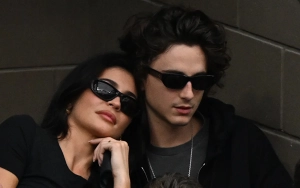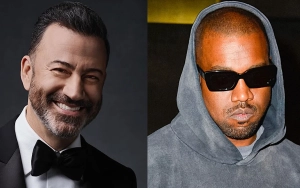
Gawker wins in the legal battle against Tarantino, but judge allows the 'Django Unchained' director to file an amendment.
- Apr 23, 2014
AceShowbiz - Quentin Tarantino's lawsuit against Gawker has been thrown out of the court. Judge John F. Walter has sided with the gossip site, granting the defendant's motion to dismiss the director's legal complaint. However, the "Django Unchained" helmer is still allowed to re-file the case if there are any key changes. The amendment should be submitted by May 1.
Gawker was sued for linking a copy of Tarantino's leaked script "The Hateful Eight". The director said, "There was nothing newsworthy or journalistic about Gawker Media facilitating and encouraging the public's violation of Plaintiff's copyright in the Screenplay, and it's conduct will not shield Gawker Media from liability for their unlawful activity."
Gawker argued that Tarantino had no one but himself to blame for he deliberately turned the leak into a story. "Thanks to Tarantino's shrewd publicity strategy, the leak of 'The Hateful Eight' - and the content of the script - had been widely dissected online and was a topic of heated conversation among Defamer readers," the company stated.
The website was sued for "contributory copyright infringement for linking to a site that is being sued for direct copyright infringement." In the ruling on Tuesday, April 22, Judge Walter said, "[N]owhere in these paragraphs or anywhere else in the Complaint does Plaintiff allege a single act of direct infringement committed by any member of the general public that would support Plaintiff's claim for contributory infringement."
"Instead, Plaintiff merely speculates that some direct infringement must have taken place. For example, Plaintiff's Complaint fails to allege the identity of a single third-party infringer, the date, the time, or the details of a single instance of third-party infringement, or, more importantly, how Defendant allegedly caused, induced, or materially contributed to the infringement by those third parties."
The federal judge added, "Court GRANTS Defendant's Motion on the grounds that Plaintiff has failed to adequately plead facts establishing direct infringement by a third party or facts that would demonstrate Defendant either caused, induced, or materially contributed to the alleged direct infringement of those third party infringers."





